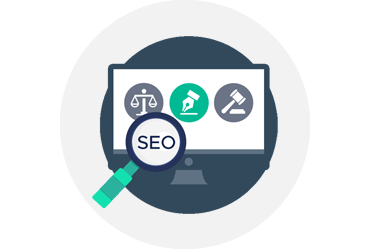 Struggling to attract clients to your law firm?
Struggling to attract clients to your law firm?  Enhance online visibility and attract clients with measurable digital marketing goals by Flow20.
Enhance online visibility and attract clients with measurable digital marketing goals by Flow20. Boosts a law firm’s authority and reach by employing a comprehensive approach.
Boosts a law firm’s authority and reach by employing a comprehensive approach.
Digital marketing for law firms is more than just having a website. It’s about creating a comprehensive online marketing strategy that encompasses various digital marketing tools and techniques to engage potential clients in ways traditional methods cannot. This includes search engine optimization (SEO), social media marketing, pay-per-click (PPC) advertising, and content marketing. Integrating these strategies, Flow20 allows a law firm to enhance its online presence and attract more clients. A robust online presence is crucial for law firms to remain competitive and relevant. In 2025, many law firms struggle to maintain visibility without embracing digital marketing. Traditional word-of-mouth referrals, while valuable, are no longer sufficient. Today’s clients typically find attorneys through search engines, online reviews, and legal directories. If a law firm fails to appear in these digital spaces, it risks being overlooked by potential clients. Moreover, digital marketing provides a cost-effective method to track the success of marketing efforts. Unlike traditional marketing, which can be challenging to measure, digital marketing allows law firms to monitor metrics such as website traffic, conversion rates, and client engagement. This data-driven approach by Flow20 enables firms to refine their strategies, ensuring they get the best return on their marketing spend.

One of the most significant benefits of digital marketing is its ability to extend a law firm’s reach beyond local geographical limits. With a well-executed online marketing strategy, law firms can attract clients from various regions, not just their immediate vicinity. This broader reach can lead to increased business opportunities and a more diverse client base. Another crucial aspect is the emphasis on online reviews. The majority of people rely on online reviews before hiring an attorney. High volume and good ratings improve favorability among potential clients. Responding to both positive and negative reviews can enhance a law firm’s online reputation, making it more attractive to prospective clients. Law firm SEO can significantly enhance visibility and lead generation, giving firms a competitive edge in the digital landscape. Law firm digital marketing strategies by Flow20 are also flexible, allowing law firms to adjust their efforts based on workload and business goals. Many aspects of digital marketing can be managed with low-cost or free tools, making it accessible even for smaller firms and enhancing their law firm’s website. Setting measurable marketing goals and benchmarking performance against competitors help law firms continually improve their online presence and client engagement.

Establishing clear and realistic marketing goals is essential for law firms looking to enhance their digital presence and engage effectively with potential clients. These goals provide a roadmap for all marketing efforts, ensuring that every campaign and strategy aligns with the firm’s overall business objectives. Without clear goals, it becomes challenging to measure success or make informed decisions about adjusting strategies. Effective digital marketing goals require considering metrics like client acquisition cost, cost per lead, and the average time taken for leads to become paying clients. These metrics help firms understand their marketing efficiency and make necessary adjustments to improve their return on investment (ROI). Understanding and defining the target audience enables firms to tailor their digital marketing strategies and content to the specific needs and behaviors of potential clients. The subsections below delve deeper into identifying marketing goals and defining the target audience.

Search engine optimization (SEO) is a critical component of any law firm’s digital marketing strategy. SEO leads have a significantly higher close rate compared to traditional outbound leads. Optimizing websites for search engines increases organic traffic and improves visibility on search engine results pages (SERPs). This increased visibility can lead to more potential clients discovering the firm’s services. A well-executed Flow20’s SEO strategy involves both on-page and off-page elements. On-page SEO focuses on optimizing the content and structure of the law firm’s website, while off-page SEO involves building quality backlinks and improving the site’s authority. The subsections below provide detailed insights into key elements of on-page SEO and the importance of local SEO for law firms.
Digital marketing is essential for law firms in 2025 as it significantly improves their online visibility, attracts new clients, and ensures competitiveness in an increasingly digital environment. Embracing these strategies is vital for sustained growth and success.
Law firms can greatly benefit from SEO strategies by enhancing their visibility and attracting more potential clients through improved search engine rankings. This ultimately leads to increased lead generation and business growth with Flow20.
The key elements of on-page SEO for law firm websites involve targeting specific keywords, optimizing title tags and headers, and creating high-quality content that effectively addresses potential clients' needs. Focusing on these elements is crucial for improving online visibility and attracting clients.
PPC advertising allows law firms to gain immediate visibility by strategically targeting specific demographics and locations, ensuring that their ads reach the most relevant potential clients quickly. This targeted approach enhances their online presence and drives swift engagement.
Law firms should consider collaborating with a legal marketing agency to enhance their marketing strategies while freeing up time to prioritize client service. This partnership leverages specialized expertise that can significantly improve a firm's visibility and client engagement.
